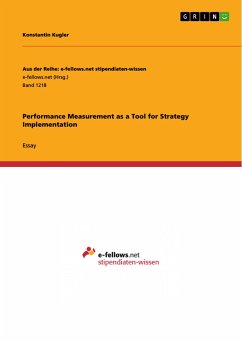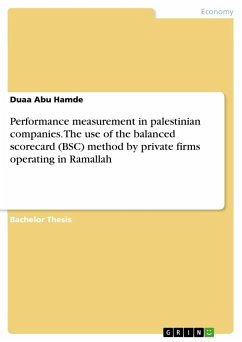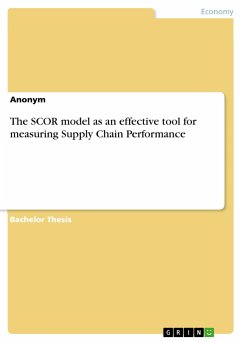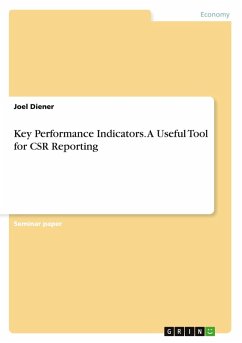Essay from the year 2014 in the subject Business economics - Business Management, Corporate Governance, grade: 1,0, Stockholm University, course: FE4521 Performance Management, language: English, abstract: The prime managerial purpose of performance measurement is to control. The idea is that managers control behaviors by supplementing manual monitoring, which is unfeasible in large organizations, with formal, information-based control systems. Such performance measurement systems specify required employee actions to achieve organizational goals and measure whether employees have undertaken those actions. Thereby, managers intend to get what they measure.Since the early 1980s, PM has evolved from financial reporting to multidimensional, integrated frameworks, addressing the need of organizations to align PMS with their strategic objectives to secure long-term business success. While there are numerous possibilities associated with PM for strategy implementation, there are as manypitfalls and risks involved. Therefore, the aim of this essay is to discuss and elaborate on findings in the literature on how to leverage potential opportunities and avoid key risks.For the purpose of this essay, possibilities are defined as probable benefits, the realization of specified goals and sustainable performance improvement. Conversely, risks relate to potential costs, results adversarial to initial expectation and threats to long-term success. The essay is structured into four arguments that reflect my view on PM as a tool for strategy implementation: (1) strategic alignment and failure, (2) strategic adaptability and rigidity, (3) inadequate and comprehensive PM, and (4) dysfunctional and purposeful incentivation. The main points and required future research areas are summarized in the conclusion.
Hinweis: Dieser Artikel kann nur an eine deutsche Lieferadresse ausgeliefert werden.
Hinweis: Dieser Artikel kann nur an eine deutsche Lieferadresse ausgeliefert werden.








